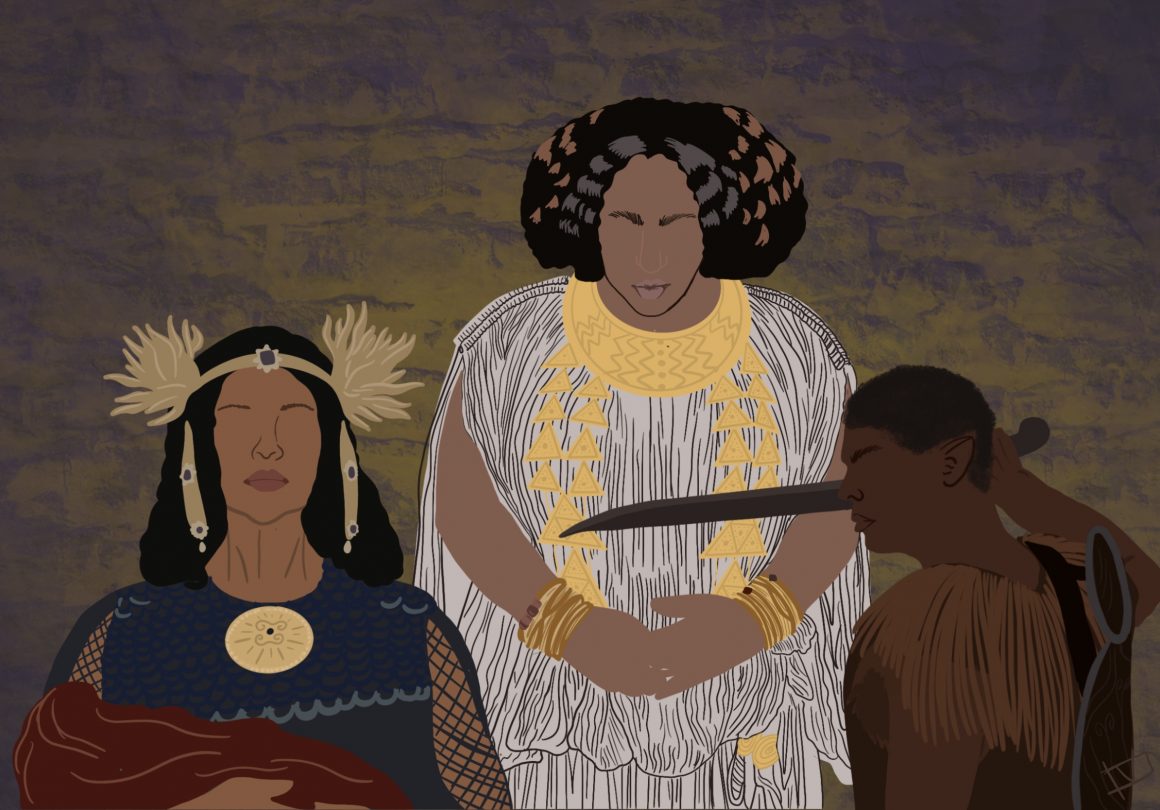
“Forced diversity” complaints are ever-increasingly forced
By Logan Jaspers, September 26 2022—
The new The Lord of the Rings show, The Rings of Power, has become the latest battleground in the perennial culture war. Indeed, The Rings of Power’s reception represents polarization’s murder of nuance — by far the two most popular IMDb user ratings are 1 and 10. The show’s controversy stems significantly from the casting of Black actors in prominent roles within the show.
It’s a marvel this kind of rhetoric isn’t passé yet, because the cycle of outrage over “forced diversity” is constantly recycled. Earlier this year, some outlets were hysterical over Lightyear’s “gay agenda,” Prey starring an Indigenous actress, or Grand Theft Auto VI supposedly having a Latina protagonist. That right-wing audiences get so angry over every new piece of media that many wouldn’t consume in the first place is baffling — the perpetual outrage over banal, corporate entertainment should be exhausting, yet every few weeks something else animates their ire.
At any rate, this twistedly well-oiled outrage machine was churning out op-eds over “wokeism” and The Rings of Power months before the first episodes were released. RedState culture critic, Brandon Morse was griping about “an injection of woke culture and social justice values,” on Valentine’s Day over its trailer. As Morse didn’t elaborate on what made the ad “woke,” it seems likely this is in reference to the prominence of Black and female characters. Since then, he’s repeatedly condemned it as a “bastardization” with “forced homosexuality.”
It sure seems that people like Morse are incensed solely by non-White actors in their media. But if one grants that the hysteria over “forced diversity” in The Rings of Power is in good faith and not mere racism, then their argument, as summarized by CNN’s John Blake, is that casting non-White actors betrays Tolkien’s vision, a vision that supposedly reflected Europe’s White nature.
This argument is flawed for a few reasons. The Rings of Power isn’t a perfect reflection of Tolkien’s vision to begin with — it’s a spin-off derivative of Tolkien’s mythology rather than a retelling of a pre-existing story. It’s an adaptation more detached from the source material than, say, Peter Jackson’s movies. As such, the show is afforded more creative flexibility in what they can write.
Even if this wasn’t the case, successful adaptation is a fickle artform in itself. What works on print may not work on the big screen, which may not work episodically. For an adaptation to work, adjustments are inevitable. Had the Jackson movies been a straight retelling of The Lord of the Rings books, they would have been messy, if not disastrous — my apologies to Tom Bombodil fans.
As many have pointed out already, people who justify their desire to exclude black actors on account of historical accuracy willingly ignore that The Rings of Power is fantasy, not some kind of fiction grounded in reality. This fiction features a diverse world within its own racial conceptions — a world populated by humans, dwarves, elves and hobbits is far from homogenous. Despite them claiming historical backing, these critics view the past ahistorically, as Black communities have lived across Europe for hundreds of years.
Fundamentally, the notion of “forced diversity” is simply incoherent. Barring studio interference in the production of media, what’s coercive about someone telling the story they want to tell, the way they want to? What is imposed with a creative team casting the actors they feel appropriate for a given role? The accusation of forced diversity, as used vis-à-vis The Rings of Power makes no sense.
Admittedly, having seen the first few episodes of The Rings of Power, I’m not in love with it either. It lacks the passion for Tolkien that Jackson’s trilogy had, over-relies on CGI and is swampishly paced. As an adaptation derivative of The Lord of the Rings, the show fails to justify its existence beyond selling Prime Video subscriptions to Tolkien fans. Ideally, the maxim of “if it ain’t broke, don’t fix it” would guide the decision to, or not to adapt something — especially something widely beloved like The Lord of the Rings.
But, the influx of bigotry packaged as analysis devalues earnest criticism of shoddy storytelling. Given how divisive reception to The Rings of Power has been, it’s easy to conceive the label of racist being misapplied to good-faith critics, as if everyone who dislikes the show is on the same team. There must be a concerted effort to oppose any such prejudice, so we may preserve critically thinking about culture.
This article is part of our Opinions section.
